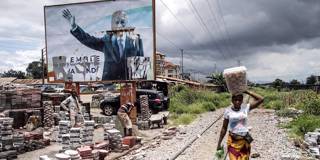The democratization push in Africa’s poorest countries has failed to produce legitimate governments capable of delivering security and development, and the increasing frequency of military coups should trigger a rethink. Where institutions are weak, elections alone will not make leaders accountable.
ABIDJAN – At the end of the 1980s, political liberalization swept across Africa, seemingly indicating that it was the continent’s turn to embark on history’s inexorable march toward democracy. Some commentators argued that, by increasing the legitimacy of African governments, political reform contributed to the subsequent decline in military coups.

ABIDJAN – At the end of the 1980s, political liberalization swept across Africa, seemingly indicating that it was the continent’s turn to embark on history’s inexorable march toward democracy. Some commentators argued that, by increasing the legitimacy of African governments, political reform contributed to the subsequent decline in military coups.